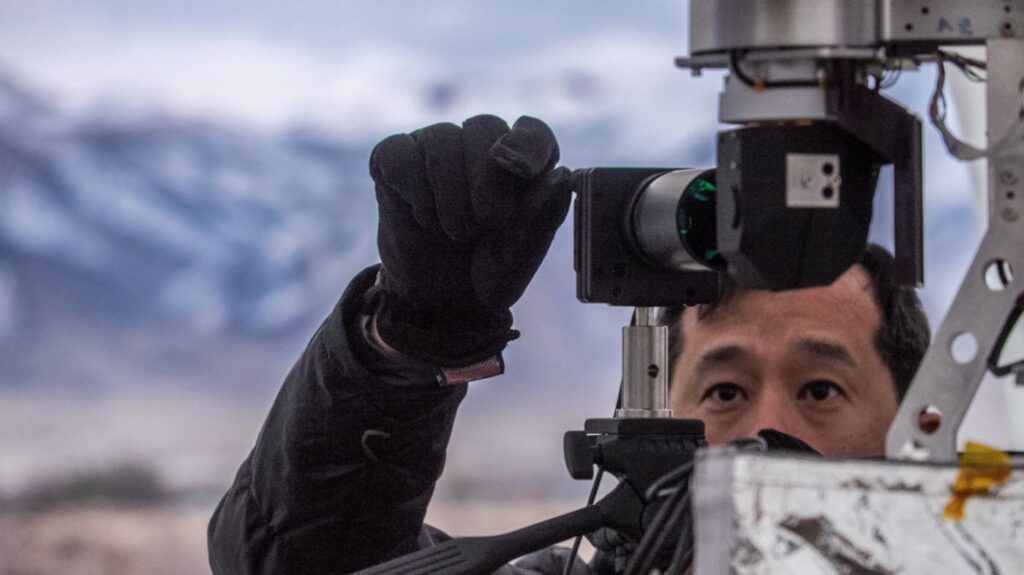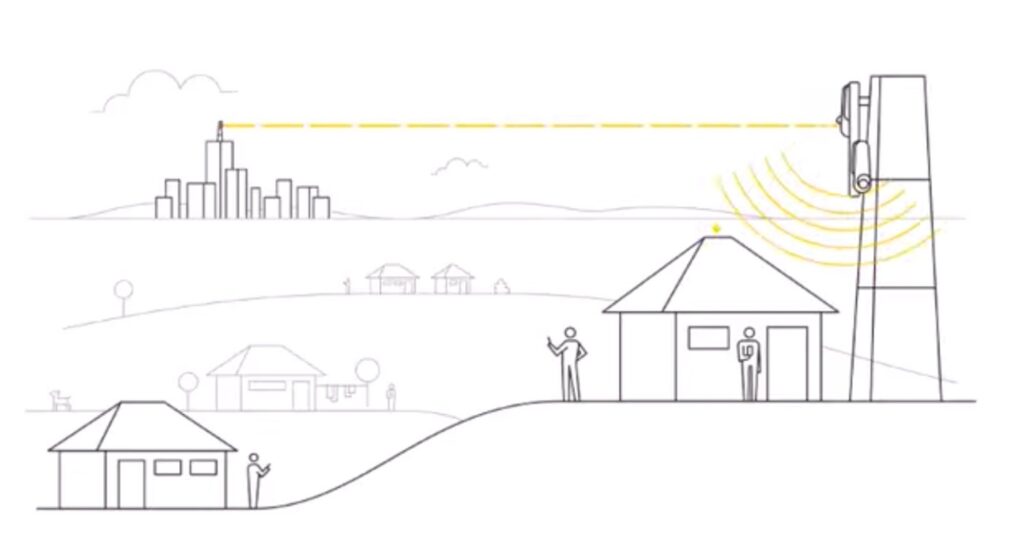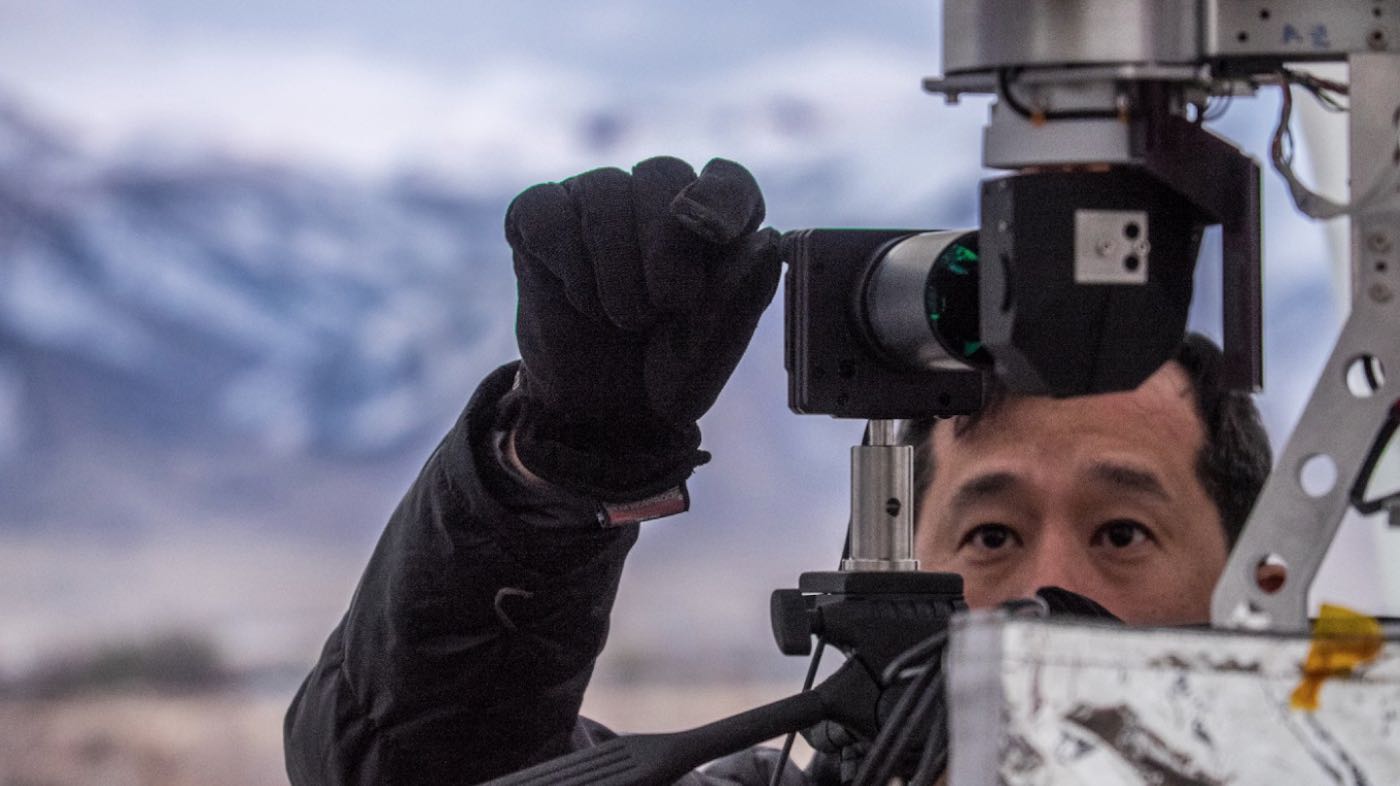A tech project has developed a way of bringing fiber optic-speed internet to the most remote and mountainous parts of India and Kenya.

Their plan is to blast beams of gigabyte-rich light from projectors mounted on high towers in a bid to bridge the digital divide and bring universal internet connectivity.
If you want to get a Zoom call into the home of a villager in the remote Chaparai valley in India, you need a system that is quick and easy to deploy amid the ruggedness of the terrain, and one that is fast and reliable with tens of gigabytes of throughput.
Project Taara, founded by the tech innovation group called X, which styles itself as the “Moonshot Factory,” has a bright alternative to laying hundreds of miles of fiber optic cable to connect remote villages—and it’s a lot cheaper and less labor intensive.
It uses the same beams of light contained inside fiber-optic cables, but without the cables. Projectors mounting on high poles and towers can beam the information through the air up to 12 miles away.
MORE: Solar-Powered Panels Pull Water Out of the Air For Navajo Families Who Have None
With a clear line of sight, wireless optical communication technology can transmit data at high speeds of up to 20 gigabytes per second, and can do so without installers bothering to navigate real estate laws, or the costs of digging around bodies of water or tunneling under railroads.

The kind of light emitted by the machine doesn’t damage any part of animal physiology. However if objects pass through the beam of information, one would experience a slight service interruption. To dampen these interruptions, the system automatically resends whatever data it detects was interrupted if, for instance, a bird flies through the stream.
“We are creating history here,” says Dinesh Kumar, project officer with India’s Integrated Tribal Development Agency, which is working with Taara to bring connectivity to remote parts of India.”The last 400 years I couldn’t get connectivity here to Chaparai… it’s an absolute miracle.”
POPULAR: Breakthrough Solar System Uses Recycled Aluminum to Store Energy—Without Batteries
With more than 3 billion people who regularly live without access to the internet, X is not stopping with India but has already announced, a partnership to bring Project Taara to Kenya as well as other parts of sub-Saharan Africa.
Liquid Telecom and Econet Group, which provide telecommunications services across the region, will add Taara-sourced connectivity to its packages in Kenya, following a successful pilot period last year.
According to a blog post from X, they will use the Taara systems to reach communities over rivers, post-conflict zones, and national parks.
Bridge The Divide of Hope By Sharing This News With Friends on Social Media…




















